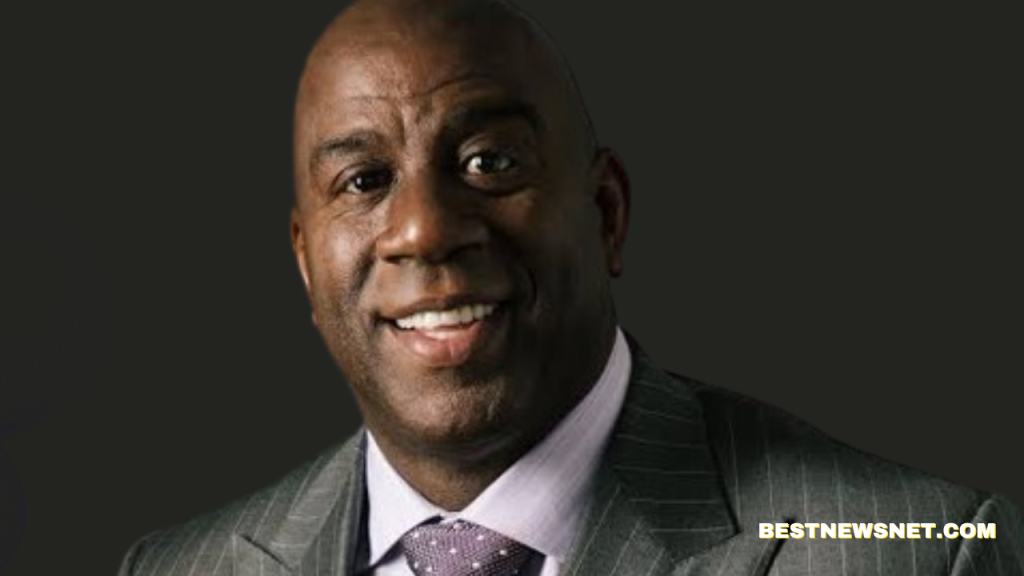Kareem Abdul-Jabbar, born Ferdinand Lewis Alcindor Jr. in 1947, is an iconic figure in the realm of basketball. From his early days towering over classmates to becoming the NBA’s all-time leading scorer, Abdul-Jabbar’s journey is one of unparalleled success and influence. This article delves into the various chapters of his life, exploring his early years, college career, NBA triumphs, personal life, and post-playing endeavors.
Personal Stats
| Full Name | Kareem Abdul-Jabbar |
| Date of Birth | April 16, 1947 |
| State of Origin | New York |
| Birthplace | New York City |
| Parents | Ferdinand Lewis Alcindor Sr. (Father), Cora (Mother) |
| Occupation | Former Professional Basketball Player, Author, Coach, Actor |
| Nationality | United States |
| Citizenship | United States |
| Alma Mater | – University of California – Los Angeles (UCLA) – Power Memorial Academy |
Early Life And Education
He was born in New York City to Ferdinand Lewis Alcindor Sr. and Cora, young Alcindor, later known as Lew Alcindor, exhibited his towering presence early on. Standing at 5’8″ by the age of nine, he quickly became a force on the basketball court, already dunking by eighth grade. His high school years at Power Memorial Academy were nothing short of legendary, marked by city records, consecutive wins, and three straight city titles. Alcindor’s team earned the title of “The #1 High School Team of the Century” in 2000, highlighting his extraordinary impact.
College Career And John Wooden
Enrolling at the University of California-Los Angeles (UCLA) in 1965, Alcindor continued his dominance under the legendary coach John Wooden. Leading the Bruins to three consecutive national championships from 1967 to 1969, he earned the title of the NCAA Tournament’s Most Outstanding Player each year. The combination of Alcindor’s skills and Wooden’s coaching prowess marked an era of college basketball supremacy.
Milwaukee Bucks Era
He was selected by the Milwaukee Bucks as the first overall pick in the 1969 NBA draft, Alcindor seamlessly transitioned to the professional arena. His impact was immediate, earning the Rookie of the Year award and propelling the Bucks from a 27-win season to a formidable 56-26 record. The addition of Hall of Famer Oscar Robertson in 1971 further fueled the Bucks’ success, culminating in a 1971 NBA finals sweep and Alcindor’s first Most Valuable Player (MVP) award.
Conversion to Islam
In 1971, Alcindor embraced Islam, adopting the name Kareem Abdul-Jabbar, reflecting a commitment to nobility and service. Despite this personal transformation, his on-court prowess remained undiminished. Abdul-Jabbar led the Bucks to another NBA finals appearance in 1974, showcasing his resilience and dedication.
Los Angeles Lakers Dominance
A desire for change led Abdul-Jabbar to request a trade in 1975, and he found a new home with the Los Angeles Lakers. Over the next 15 seasons, Abdul-Jabbar, alongside rookie Magic Johnson from 1979, propelled the Lakers to five league titles. His signature skyhook shot became an unstoppable offensive weapon, and the Lakers dominated rival teams, securing their place in NBA history.
Hollywood Calling
Abdul-Jabbar’s success extended beyond the court to Hollywood. He showcased his versatility in films like “Game of Death” (1979) and “Airplane!” (1980). Even in his 30s, he maintained a high level of performance, exemplified by his MVP recognition in the 1985 finals against the Boston Celtics. His enduring success and iconic skyhook shot solidified Abdul-Jabbar’s status as a basketball legend.
Post-Playing Life
Retiring in 1989 as the NBA’s all-time leading scorer with 38,387 points, Abdul-Jabbar transitioned seamlessly into post-playing roles. His involvement with the New York Knicks and the Los Angeles Lakers showcased his continued passion for the game. Additionally, his coaching stint on the White Mountain Apache reservation and his book, “A Season on the Reservation” (2000), highlighted his commitment to community and storytelling.
Legacy And Recognition
Abdul-Jabbar’s contributions extended beyond basketball. He authored several books, including “On the Shoulders of Giants” (2007), focusing on the Harlem Renaissance. Elected to the Naismith Memorial Basketball Hall of Fame in 1995, he received the Presidential Medal of Freedom in 2016 from Barack Obama, acknowledging his impact on and off the court.
Health Challenges And Resilience
In 2009, Abdul-Jabbar faced a rare form of leukemia, yet he approached it with resilience. By 2011, doctors declared him cancer-free. His ability to overcome health challenges paralleled his on-court tenacity, showcasing a remarkable spirit that transcended the basketball arena.
Later Years And Social Commentary
Even in his later years, Abdul-Jabbar remained active and engaged. His participation in “Dancing with the Stars: Athletes” at the age of 71 demonstrated his enduring athleticism. Beyond entertainment, he continued to contribute thoughtful essays on societal issues, addressing topics like the controversial firing of Roseanne Barr and the portrayal of socially conscious villains in popular entertainment.
Personal Life and Legacy
As a father of five, Abdul-Jabbar’s personal life is marked by family. His legacy goes beyond statistics; it encompasses the influence he had on the game, the communities he engaged with, and the broader cultural conversations he contributed to.

